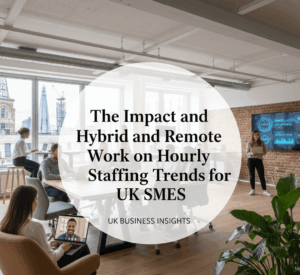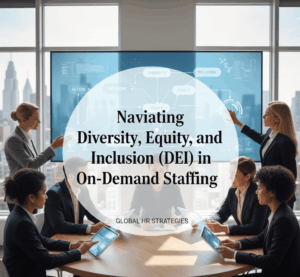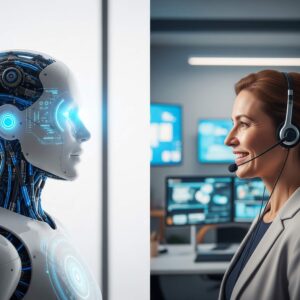Should You Hire a Virtual Personal Assistant or Build an AI Agent? Pros and Cons
In today’s fast-paced digital landscape, where businesses strive for efficiency and innovation, the choice between human expertise and artificial intelligence can define success. As Elon Musk once noted, “AI is the most disruptive force in history, ” but does that mean it’s always the superior option for your administrative needs?
Key Areas We Will Cover
- Defining virtual personal assistants and AI agents
- Exploring the key differences between the two
- Analysing the pros and cons of hiring a virtual personal assistant
- Examining the advantages and drawbacks of building an AI agent
- Factors to consider when making your decision
- The potential of a hybrid approach
- Future trends in assistance and automation
Introduction
Deciding whether to hire a virtual personal assistant or build an AI agent is a critical choice for businesses aiming to optimise productivity and manage costs effectively. This article delves into the pros and cons of each option, helping you understand their implications for small businesses and entrepreneurs. By comparing human adaptability with machine efficiency, we provide insights to guide your decision, ensuring you select the solution that aligns with your operational needs and growth goals.
What is a Virtual Personal Assistant?
A virtual personal assistant (VPA) is a remote human professional who provides administrative, creative, or specialised support to individuals or businesses. Unlike traditional in-office staff, VPAs work flexibly from anywhere, often handling tasks such as email management, scheduling, customer interactions, and content creation.
Key Benefits of Human Involvement
VPAs bring emotional intelligence and nuanced understanding to their roles, making them ideal for scenarios requiring empathy or improvisation. For instance, they can draft personalised communications or resolve complex client queries with a human touch.
What is an AI Agent?
An AI agent is an autonomous software system powered by artificial intelligence, designed to perform tasks independently based on predefined goals. These agents use machine learning and algorithms to automate processes, such as data analysis, workflow optimisation, or even decision-making in dynamic environments.
How AI Agents Operate
Unlike simple chatbots, AI agents are proactive, they can plan multi-step actions, adapt to changes, and integrate with tools like CRMs or email platforms. Building one typically involves using platforms such as ChatGPT, Zapier, or custom development frameworks.
Key Differences Between Virtual Personal Assistants and AI Agents
Understanding the distinctions is essential for informed decision-making. Here’s a breakdown:
Aspect | Virtual Personal Assistant (Human) | AI Agent |
Autonomy | Relies on human initiative and adaptability | Fully autonomous, executes tasks without constant input |
Interaction Style | Reactive and proactive with emotional nuance | Primarily proactive, data-driven |
Cost Structure | Hourly or subscription-based, often higher | One-time setup or low monthly fees |
Availability | Limited by human factors like time zones | 24/7 operation without breaks |
Scalability | Scales with hiring more staff | Easily handles increased volume |
Complexity Handling | Excels in creative, unstructured tasks | Best for repetitive, rule-based processes |
These differences highlight how VPAs offer personalised flexibility, while AI agents provide consistent automation.
Pros and Cons of Hiring a Virtual Personal Assistant
Hiring a VPA can transform your business operations, but it’s important to weigh the benefits against potential challenges.
Pros
- Personalised Human Touch: VPAs provide empathy and creativity, essential for customer relations or custom content creation.
- Adaptability and Initiative: They anticipate needs, suggest improvements, and handle unexpected situations with critical thinking.
- Specialised Skills: Access to experts in niche areas, such as social media strategy or event planning, without full-time commitments.
- Building Relationships: Foster long-term client loyalty through genuine interactions that AI cannot replicate.
Cons
- Higher Costs: Rates range from £10 to £50 per hour, accumulating for ongoing support.
- Availability Constraints: Subject to holidays, illness, or time zone differences, limiting round-the-clock service.
- Onboarding Time: Requires training on business-specific processes, potentially leading to initial errors or delays.
- Human Error Risk: Despite expertise, mistakes can occur in high-volume tasks.
Pros and Cons of Building an AI Agent
AI agents are gaining popularity for their efficiency, but they come with their own set of limitations.
Pros
- Cost-Effectiveness: Low ongoing expenses, often just a subscription like £15/month for tools such as ChatGPT.
- 24/7 Availability: Operate continuously, handling tasks like email sorting or data entry at any time.
- Scalability: Manage growing workloads without additional hires, ideal for expanding businesses.
- Consistency and Speed: Deliver accurate results for repetitive tasks, reducing errors from fatigue.
- Integration Capabilities: Seamlessly connect with existing software for automated workflows.
Cons
- Lack of Emotional Intelligence: Struggle with nuanced interactions requiring empathy or creativity.
- Setup and Learning Curve: Initial customisation demands time and technical knowledge.
- Limited to Structured Tasks: Not suited for complex, human-centric activities like personalised outreach.
- Potential for Errors: If not properly configured, can lead to inaccuracies or security issues.
- Ethical Concerns: Issues around data privacy and bias in decision-making.
Factors to Consider When Choosing Between a VPA and an AI Agent
Your choice depends on business size, budget, and task nature. For small businesses with tight budgets and routine tasks, AI agents offer quick wins. However, if your operations involve client relationships or creative problem-solving, a VPA might be indispensable. Evaluate your needs by assessing task complexity, required speed, and long-term scalability.
When to Hire a VPA
Opt for a human assistant when tasks demand personalisation, such as managing client communications or strategic planning.
When to Build an AI Agent
Choose AI for automation of repetitive duties, like lead organisation or social media scheduling, to free up time for core activities.
The Hybrid Approach: Combining Human and AI Assistance
Many businesses thrive by integrating both. Use AI agents for routine automation, while VPAs handle high-touch tasks. This model maximises efficiency, for example, an AI agent could sort emails, allowing a VPA to focus on crafting responses.
Future Trends in Assistance and Automation
As AI evolves, agents will become more sophisticated, potentially blurring lines with human capabilities. However, the human element remains irreplaceable for empathy-driven roles. Businesses adopting hybrid solutions early will likely gain a competitive edge.
Conclusion
In summary, hiring a virtual personal assistant offers unparalleled adaptability and human insight, ideal for nuanced tasks, while building an AI agent provides cost-effective, scalable automation for routine processes. Weigh your specific needs against the pros and cons to make the best choice, or consider a hybrid model for optimal results. Ultimately, the right solution enhances productivity without compromising quality.
Ready to Boost Your Productivity?
If you’re leaning towards the personalised support of a virtual personal assistant, StaffNow UK connects you with skilled professionals tailored to your business. Visit staffnow.uk today to find the perfect match and streamline your operations.
Frequently Asked Questions
Navigating the choice between a virtual personal assistant and an AI agent raises many queries. Below, we address some common ones to help clarify your options.
VPAs excel in areas requiring human judgement, such as customer service, content creation, and relationship management.
Costs vary, but basic setups using tools like Zapier start from £10-20 per month, with custom development potentially higher.
While AI handles routine tasks efficiently, it lacks the emotional intelligence needed for complex, interpersonal roles.
Potential issues include data breaches if not configured properly, so always prioritise secure integrations and compliance.
Platforms like StaffNow UK offer vetted professionals, start by assessing your needs and matching with suitable candidates.

The Impact of Hybrid and Remote Work on Hourly Staffing Trends for UK SMEs
Get in Touch The Impact of Hybrid and Remote Work on Hourly Staffing Trends for UK SMEs Did you know that in 2025, 74% of

Skills-Based Hiring in the Flexible Workforce: Strategies for UK SMEs
Get in Touch Skills-Based Hiring in the Flexible Workforce: Strategies for UK SMEs Did you know that 90% of UK SMEs are grappling with skills

Navigating Diversity, Equity, and Inclusion (DEI) in On-Demand Staffing
Get in Touch Should You Hire a Virtual Personal Assistant or Build an AI Agent? Pros and Cons Did you know that UK SMEs with

Ethical AI in Recruitment: Mitigating Bias in Candidate Matching
Get in Touch Ethical AI in Recruitment: Mitigating Bias in Candidate Matching Did you know that by 2025, 70% of HR departments are predicted to

Human Virtual Assistants vs. AI Agents: Pros and Cons for Your Business
Human Virtual Assistants vs. AI Agents: Pros and Cons for Your Business Get in Touch “Can AI truly outperform a human virtual assistant, or is

Will AI Agents Replace Human Virtual Assistants? Why Human Expertise Still Matters
Will AI Agents Replace Human Virtual Assistants? Why Human Expertise Still Matters Get in Touch “In a world where AI can schedule meetings and answer
